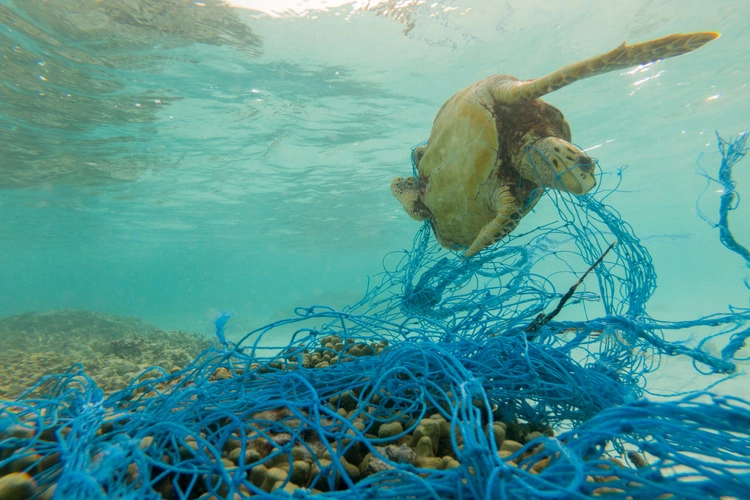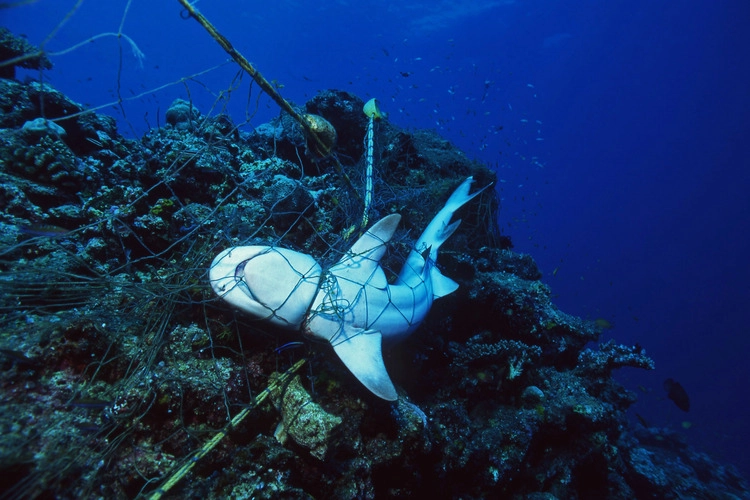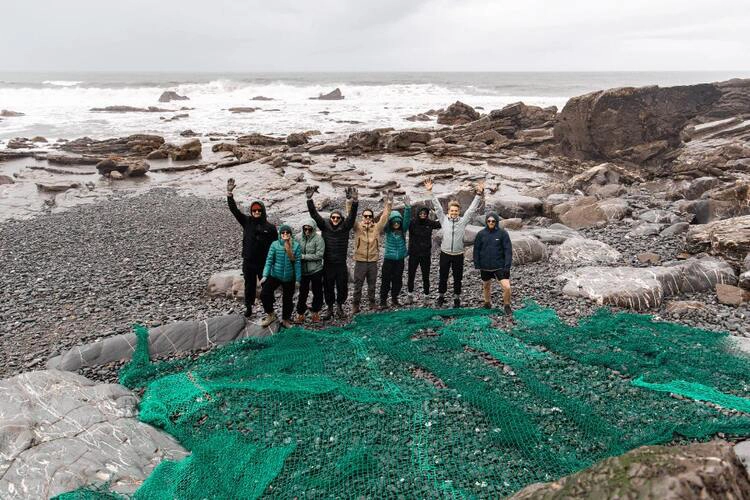
640,000 tonnes of ghost gear – equivalent to more than 1.4 trillion cotton buds – pollute oceans each year. Here’s what’s being done to help
By
Since the introduction of the plastic bag charge in the UK, the number of bags littering UK beaches has fallen by 80 per cent. But the threat of another type of plastic pollutant termed ‘ghost gear’ – describing any abandoned fishing equipment lost or discarded in the ocean – poses serious environmental damage to marine ecosystems across the world.
It is estimated that up to 2.5 per cent of all fishing gear is lost in the ocean every year, including more than 78,000 sq km of nets, 25 million pots and traps and 740,000 km of longlines. In a recent report by Waterhaul, the total weight of ghost gear pollution put into our seas each year is 640,000 tonnes (equivalent to more than 1.4 trillion cotton buds).
Ghost gear is particularly harmful to marine life due to its design – which seeks to trap and kill, as well as being extremely durable – and can wash up on shores like other forms of plastics.

In Mexico’s Upper Gulf of California, abandoned gillnets have almost driven the vaquita porpoise – the world’s smallest porpoise – to extinction, while many other marine creatures, such as turtles and fish, are affected. Animals that get caught in ghost gear are likely to die in a painful and slow way, through exhaustion or suffocation. Alongside its effects on marine life, ghost gear can also impact coral reefs and threaten the safety of mariners by impeding safe navigation.
In September 2023, an entrapped humpback whale was spotted in Algoa Bay in South Africa, caught in ghost gear including two large buoys, a smaller buoy, and a significant quantity of 20mm nylon cable attached to its fins. If left, the whale would have died, but the ghost gear was successfully removed by World Cetacean Alliance (WCA) Partner Raggy Charters.
This ghost gear from the rescue has since been recycled into sunglasses, with Raggy Partners and Cornwall-based social enterprise Waterhaul partnering to create a Rescue to Recycle collection out this month, aiming to repurpose what may be considered ‘worthless waste’ into a high-performance product. The frames of these glasses are made entirely from the fishing gear recovered from the 2023 rescue mission.
‘Fortunately, the properties that make ghost gear so difficult to deal with — its abundance, strength and durability — make it a brilliant resource to repurpose into something new,’ said marine scientist & founder of Waterhaul, Harry Dennis.

‘By harnessing the high-strength polymers used in their production, we’re taking old fishing nets and rope out of the environment and giving them a new lease of life. Waterhaul is all about combining action with purpose,’ Dennis continued. ‘We want to tackle ghost gear by reframing plastic waste and treating it as a valuable resource.’

Just last month, a 145kg fishing net was recovered by Waterhaul during an expedition in Cornwall (the equivalent weight of an upright piano or baby African elephant).
Elsewhere in the world, the threat of ghost gear is being mitigated by modifying gear with features including escape hatches, or adding biodegradable panels to pots and traps. Using weaker ropes to connect gear on the seabed to mark buoys on the surface may also reduce to the risk of harm to marine life, allowing whales to break free easily. The use of ropes is another factor being considered, with concepts being developed to use a trigger or timer to bring pots to the surface, eliminating ropes entirely from gear.




